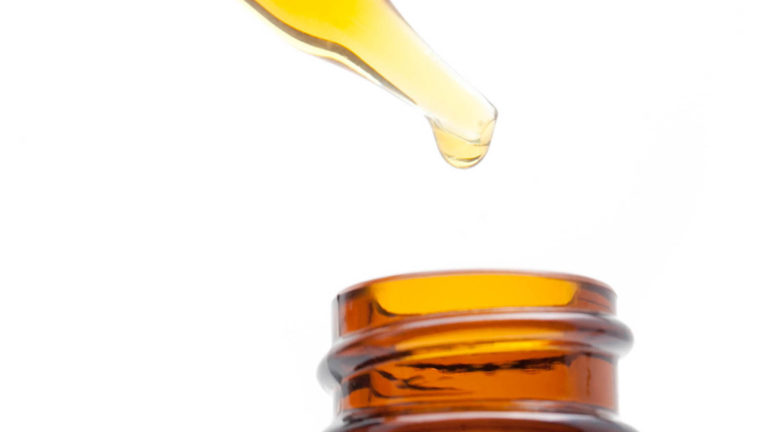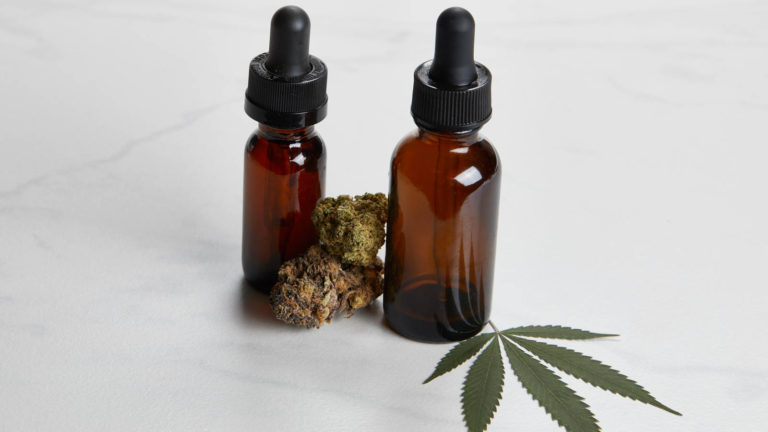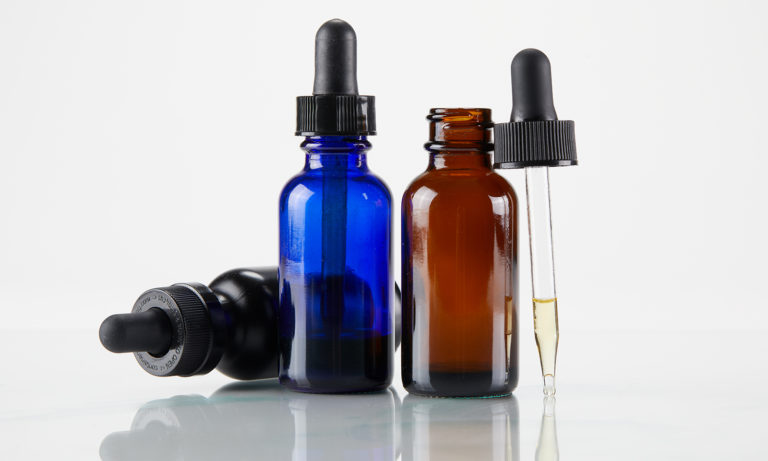Yes. Hemp-derived cannabidiol (CBD) oil is legal in Florida and medical marijuana patients have access to CBD oil with higher levels of THC.
Since the passage of the Hemp Farming Act of 2018, which provided states with the power to legislate and establish frameworks for hemp and hemp-derived products, lawmakers in Florida have been crafting the state's rules regarding industrial hemp and hemp-derived CBD. While many rules remain pending as policymakers finalize details, the bulk of Florida's hemp and hemp CBD laws are now in place.
Currently, CBD products are legal in Florida as long as they were extracted from hemp plants with less than .3% THC by weight. Registered medical marijuana patients in Florida have access to CBD products with higher levels of THC.
What is CBD?
CBD is the cannabis plant's second most prevalent cannabinoid. Generally speaking, CBD is said to offer several therapeutic and medicinal qualities without the intoxicating buzz. CBD can be sourced from both marijuana and hemp plants, which are legal in most areas, as they contain only trace amounts of THC.
 Photo by: Gina Coleman/Weedmaps
Photo by: Gina Coleman/WeedmapsImage lightbox

Researchers have identified a number of potential health benefits linked to CBD, including anti-inflammatory, analgesic, anti-anxiety, and anti-seizure properties. The chemical has shown promise in treating numerous health conditions, ranging from epilepsy and other seizure disorders, to neurological conditions like Alzheimer's disease, to mood disorders such as depression, anxiety, and psychosis, to pain, cancer, and much more.
As research remains ongoing, there is a growing body of evidence pointing to CBD's potential efficacy in various medical applications.
Why is CBD sometimes illegal?
Even though hemp strains don't produce enough THC to produce intoxicating effects, all types of cannabis, including hemp, were considered illegal under the 1970 Federal Controlled Substances Act. The law swept all cannabis into the Schedule I category, which defines a substance as having a high potential for abuse, no accepted medical use, and a likelihood for addiction.
The Hemp Farming Act of 2018, which was signed by President Donald Trump on Dec. 20, 2018, legalized industrial hemp cultivation on the federal level and created a pathway to remove some cannabis from Schedule I status by creating a legal distinction between hemp and marijuana. Hemp is classified as cannabis that contains less than .3% THC by weight, while marijuana is cannabis that contains more than .3% THC and is therefore still categorized as Schedule I.
The Farm Bill also granted the US Food and Drug Administration (FDA) the power to regulate CBD's labeling, therapeutic claims, and its use as a food additive. Despite the passage of the Farm Bill, the FDA has taken the stance that hemp-derived CBD may not be added to food and beverages, nor marketed as dietary supplements. While the FDA has begun a process of reevaluating its stance on such CBD products, it has yet to revise its rules or specifically regulate CBD products, leading to confusion in the market. The FDA has been strict when it comes to health claims and content that could be construed as medical advice about CBD.
The federal legislation places regulations on the production and sale of hemp, including hemp-derived CBD products. The Farm Bill also provides that states may regulate and even prohibit CBD cultivation and commerce. In addition, states may attempt to regulate CBD food, beverage, dietary supplement, and cosmetic products, independently of the FDA finalizing its views on such products.
Florida CBD laws
CBD laws in Florida have undergone several changes in recent years. In 2014, Florida lawmakers approved SB 1030, which legalized low-THC CBD oil for qualifying medical marijuana patients registered in the state program. Florida's first rudimentary medical marijuana program made it legal for patients with cancer, muscle spasms, seizures, and terminal illness to obtain a doctor's recommendation to purchase, possess, and consume medical cannabis containing 10% or more of CBD and no more than .8% of THC.
In 2016, voters approved Amendment 2,which significantly expanded the state's medical marijuana program, but still did not allow for smokable forms of marijuana. After the Florida Supreme Court struck down the ban on smokable marijuana, lawmakers in March 2019 passed SB 182, which was signed by Republican Gov. Ron DeSantis. Today, registered medical marijuana patients have access to medical cannabis products that contain high levels of both THC and CBD.
During this same time period, other more CBD-specific laws in Florida were evolving alongside the medical marijuana program. SB 1020, which was passed by state lawmakers in July 2019, is by far the most important piece of legislation affecting CBD oil in Florida. This law introduced several key changes:
- In keeping with the 2018 Farm Bill, SB 1020 explicitly legalized hemp, which the law defined as a plant containing less than .3% THC by weight, the same as the federal standard.
- The law also legalized hemp extracts, defined as any substance derived from legal hemp plants that do not contain other controlled substances and are intended for ingestion.
- Legalizing CBD specifically, SB 1020 stated that hemp-derived cannabinoids are not controlled substances.
To grow and process hemp and hemp extracts, such as CBD oil, a person or business must apply for a state license. All hemp products must also be tested by a licensed independent laboratory, certifying that the product contains no more than 0.3% THC and does not have any contaminants.
 Photo by: Gina Coleman/Weedmaps
Photo by: Gina Coleman/WeedmapsImage lightbox

Florida CBD possession limits
Florida has not set any limits on how much CBD a person is allowed to possess.
Medical marijuana patients with a physician's recommendation may purchase and possess up to four ounces of cannabis from state-licensed dispensaries.
Where to buy CBD in Florida
Florida has not implemented any clear restrictions on the types of businesses that can sell CBD and products like CBD oil. You can find hemp CBD products online and at a broad range of stores, convenience shops, health food stores, CBD shops, and even a growing number of cafes, restaurants, and coffee shops. You can purchase CBD online or in a shop.
When it comes to online sales, CBD is most frequently found on brand-specific websites. You can find trusted CBD brands on Weedmaps.
When shopping for CBD products, look for important product details including the form of CBD, how much CBD the product contains, what other chemicals or ingredients are in the product, and whether it has been tested for potency and contaminants.
When purchasing from a shop, especially if it's a CBD specialist, you should ask for in-person help and expertise from an employee. Explain what you're looking for and your reasons for consuming CBD, and they should point you in the right direction. Registered medical marijuana patients can purchase CBD products that contain higher levels of THC.
How to read CBD labels and packaging
Florida law stipulates that legal CBD products must be distributed and sold with a label that includes:
- A scannable barcode or QR code linked to a certificate stating that the product has cleared lab testing.
- The product's batch number.
- Website on which full batch information is available.
- Expiration date.
- Amount of hemp extract in the product, in milligrams.
- Statement that the product contains less than .3% THC.
Aside from Florida's specific requirements, most reputable CBD producers will typically include the following information on their CBD product labels:
- Amount of active CBD per serving.
- Supplement Fact panel, including other ingredients.
- Net weight.
- Manufacturer or distributor name.
- Suggested use.
- Full spectrum, broad spectrum, or isolate.
- Batch or date code.
One of the most important things to pay attention to is whether a CBD product is full spectrum, broad spectrum, or isolate.
 Photo by: Gina Coleman/Weedmaps
Photo by: Gina Coleman/WeedmapsImage lightbox

Full spectrum means that the CBD has been extracted from a hemp plant along with all other cannabinoids and terpenes, including whatever trace amounts of THC the plant may have produced. Consuming full-spectrum CBD may yield better results thanks to the entourage effect, a phenomenon in which the mixture of cannabinoids and terpenes work together to produce a more pleasant experience.
Broad spectrum means that the product contains CBD and terpenes, but has undergone additional processes to strip out any THC.
CBD isolate is a product that has gone through more intensive processing to remove everything except for CBD. Consuming isolate may produce different effects than full-spectrum or broad-spectrum CBD, as these products do not produce the entourage effect.


